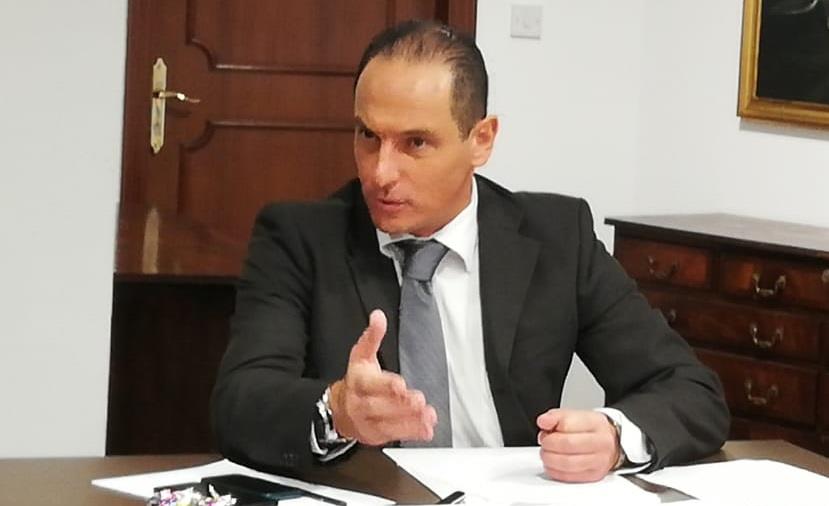“Pandemics are not just a medical phenomenon; on many levels, they affect individuals and society and cause disruption," psychiatrist Mark Xuereb said
"Stigma and xenophobia are two sides of the impact of pandemic infectious outbreaks on society. Panic and stress were related to outbreaks, too,” he told The Malta Independent.
As more concerns about the perceived threat increases, people may begin to hoard masks and medical supplies; this action usually followed by anxiety-related tendencies, sleep disturbances and lower overall perceived health status. “People with mental illness can be especially vulnerable to the effects of widespread panic and threat,” said Xuereb.
He said that it is crucial for everyone to spread sound infection control practices and help their communities maintain civil, courteous and rational communication. “A low level of suspicion of mental distress can help early detection and treatment and spare a lot of suffering to patients,” said Xuereb.
Stigma, medical mistrust, and conspiracies
Epidemics lead to stigmatization of affected individuals, figures of authority and healthcare professionals; sadly, this trend has been seen in multiple countries and with multiple infectious agents. “With COVID-19, Asian men, women, particularly Chinese, are the victims of social stigma and xenophobia, with high levels of politization and online and personal interactions threats,” said Xuereb.
He said that as with most stigma-laden interactions, due to limited information, hasty and uni-dimensional evaluations and a defensive formulaic response, the process unfolds. It is imperative that all health care professionals, particularly psychiatrists, act as the voice of reason and help to disseminate information that is properly based on evidence.
"Medical mistrust" refers to a lack of trust in and advances in medical treatment. “It results in lower use of health-care resources and poorer management of health-related conditions (along with potential misuse during crises).” In addition, medical mistrust was used to explain some of the disparities in racial and ethnic healthcare. It was linked to a variety of diseases and conditions, including cancer, autism and HIV. Medical mistrust was linked to conspiracy theories during the infectious pandemic.
Medical organizational mistrust can reinforce stigma and perceived discrimination and lead to lower adherence to recommendations for health. Clinicians must maintain a scientific, fact-based, and neutral presentation of recommendations while stressing the importance of overall infection control practices in the aftermath of COVID 19.

Anxiety and obsessive-compulsive disorder
The Maltese Crisis Team anticipates the effects of threats of infectious disease to manifest as sheer anxiety and panic: worry about getting an infection, worry about getting ill from loved ones, and worry about the presence of related symptoms — even minor ones. “The lack of definitive coronavirus treatment easily exacerbates anxiety. In most cases these symptoms of anxiety do not reach diagnostic thresholds; however, reassurance and education will benefit both the ‘worried well’ and patients who already pre existing mental health issues,” said Xuereb.
He also highlighted on the fact that there will be OCD patients who will feel the constant need to wash, clean or sterilize. He said that there is perceptual experiences, those individuals feeling dirt on their skin, would understandably amplify obsessions.
“The threat of infectious pandemics can easily exacerbate the cleaning and washing compulsions, which are also a core feature of OCD. Excessive cleansing complications include dry, chapped skin and excessive use of toxic cleaning supplies can also result in inhalational injury,” said Xuereb.
Psychotic disorders: an extreme of medical mistrust?
Xuereb also highlighted on patients with psychotic disorders, and the impact of the media constantly publishing alarming news of COVID-19 spread can lead to delusions for some patients. “Repeated media and distrust of organisations and government, as well as misappropriation of physical symptoms, can lead to delusions,” he said.
Adding fuel to the fire is a discussion of conspiracy theories related to infectious outbreaks such as HIV and Ebola in mainstream media. He pointed out that the lack of knowledge about epidemics, the increase in zoonotic infections and complex effects of climate change can affect patients as well as confuse a healthy person as a whole.
Xuereb highlighted that the crisis will bear economic hardship and that people may get hurt both physically and psychologically. “
Remember that although such a crisis is temporary, it can lead to suicide and self-harm. Hence it is vital for us all to work as a team and watch over each other. Beware fake news. Don’t obsess by being glued to social media. Get the right information from authoritative sources and help others by keeping them calm. Live your life as normally as possible. We can win the crisis: kill the excessive worry and help others do so.”
If you or a loved one are struggling with what is going on, don’t suffer alone. Reach out. Experts are at hand 24/7. Call us on our free 24/7 Crisis Line (+35699339966) or reach out to us on Facebook- Crisis Resolution Malta. You may be saving a life.